The need for adequate sleep is becoming a more prominent public health concern. The issue has particular resonance for doctors given long overnight shifts are still common in the medical world. David Lynch reports
There is a growing acknowledgement of the vital importance of sleep to good health and the clinical evidence on which this assertion is made has increased in recent years.
One clear sign of this was the inclusion for the first time of a series of questions about sleep in the Department of Health’s Healthy Ireland survey 2019. This was the fifth such survey and the data released in November showed participants reported getting, on average, 7.1 hours sleep on a week-night. Participating parents reported getting an average of 6.9 hours sleep on an average week-night.
The HSE has specific recommendations for sleep noting on its website that “sleep is important for your mental health. Most people need between five-to-nine hours sleep a night. The ideal amount is eight hours, but everyone’s different”.
Internationally, the American Academy of Sleep Medicine and the Sleep Research Society recommend seven or more hours per night for those between 18-to-60 years.
Also in the US, the Centres for Disease Control and Prevention (CDC) note “if not getting enough sleep is a regular part of your routine, you may be at an increased risk for obesity, diabetes, high blood pressure, coronary heart disease and stroke, poor mental health, and even early death. Even one night of short sleep can affect you the next day.
“On top of that, you’re more likely to be in a bad mood, be less productive at work, and be involved in a motor vehicle crash.”
The World Health Organisation (WHO) has held meetings in recent years focused on the public health impact of lack of sleep and there is currently an international best-selling book called Why We Sleep (Granata, 2017) by Professor of Neuroscience and Psychology from the University of California, Berkeley, US, Prof Matt Walker. He describes sleep health as the “elixir of life”.
Interest
Against this backdrop Dr Mike Farquhar, Consultant in Sleep Medicine, Evelina London Children’s Hospital, UK, agrees there has been some progress in a general understanding about how vital sleep is to health.
“Yes, I think there is an increasing awareness of the importance of sleep for health,” Dr Farquhar told the Medical Independent (MI).
“This is partly driven by wider awareness amongst the general public.” In this regard, Dr Farquhar mentions the huge success of Prof Walker’s book.
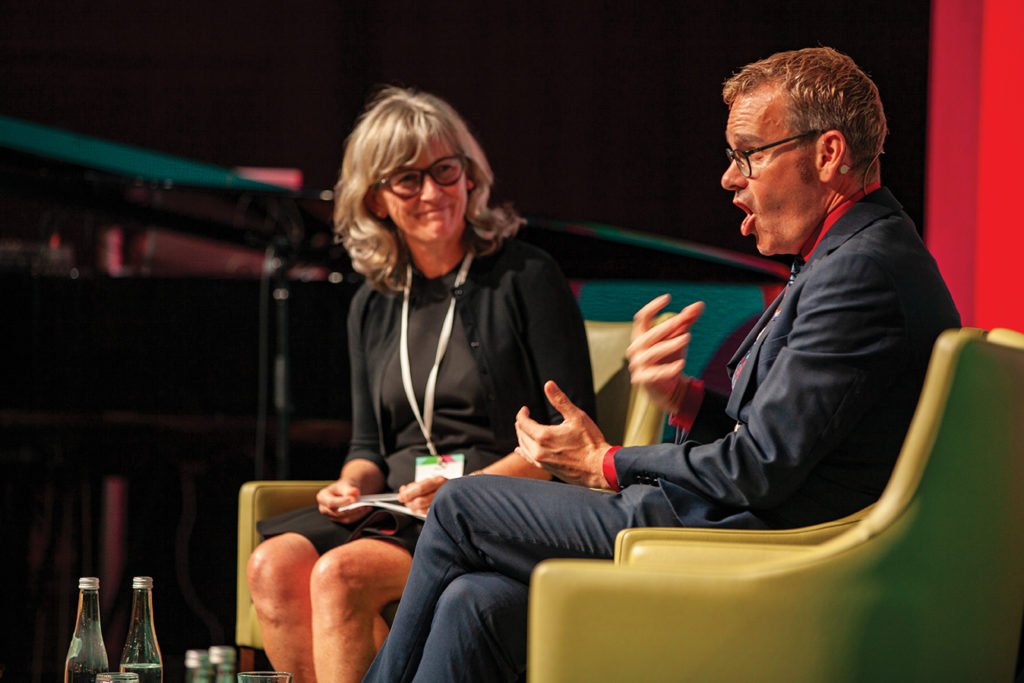
However, Dr Farquhar added that within healthcare the growing understanding about sleep has arisen from an “increased awareness of the impact of fatigue on the health and performance of healthcare staff and the consequent impact this can have on patient care.
“In the UK, there was a parliamentary report into the importance of sleep, both in general, and for shift workers, last year. There are increasing public health awareness campaigns, such as those from The [Children’s] Sleep Charity in the UK, but also more targeted campaigns.”
Dr Farquhar was in Ireland recently to speak at the dotMD conference in Galway. He thinks education “is always the key”.
“Getting sleep education into school curricula is a potentially really significant step – this allows us to educate children and young people early on about the importance of sleep, how this changes at different ages, teenagers in particular needing specifically tailored sleep advice, and how to try to get the best quality sleep they can.
“We also hope they then go home and educate their parents a bit too.”
Fatigue
In terms of how it impacts doctors on long shifts and lacking sleep, Dr Farquhar is blunt.
“It is not possible to sustain optimal function and performance without regular rest and breaks and without regular good quality sleep,” he said.
“We have permitted a culture for too long where healthcare workers are expected to work long shifts, often without breaks, and often overnight, when our internal body clocks are telling us we are meant to be asleep – it’s like working when jet lagged.
“When we become fatigued, every aspect of our ability to function is affected.
“At the end of a nightshift, the reaction time of a shift worker is likely to be impaired to the same degree, or more, as someone who is at the legal drink-drive limit – which is why healthcare workers are at significantly increased risk of crashing and dying when driving home after a nightshift.
“Tired, they are less likely to be able to deliver safe, efficient and effective care to their patients to the standards we aim for – very simply, tired doctors and nurses are far more likely to make mistakes and when mistakes happen in hospitals the consequences can be severe.”
For doctors working on the frontline in Ireland, these challenges are only too familiar.
“Traditionally doctors have had to do without sleep for as long as the career has existed,” Dr Charles Goh, Anesthesiology Registrar, and member of the IMO NCHD committee told MI.
“A lot of us have accepted that this is going to be a way of life for us. [But] We really shouldn’t. We do know that medically sleep deprivation leads to low mood, fatigue, even psychosis at a certain point, [it has] real impact on health and can lead to errors in clinical practice and outside of clinical practice.”
Dr Goh has spoken at IMO AGMs over the last couple of years highlighting the direct impact sleep deprivation and long shift work can have on doctors.
He mentioned that two years after he graduated he heard a former classmate had crashed her car and died driving home from work in a hospital.
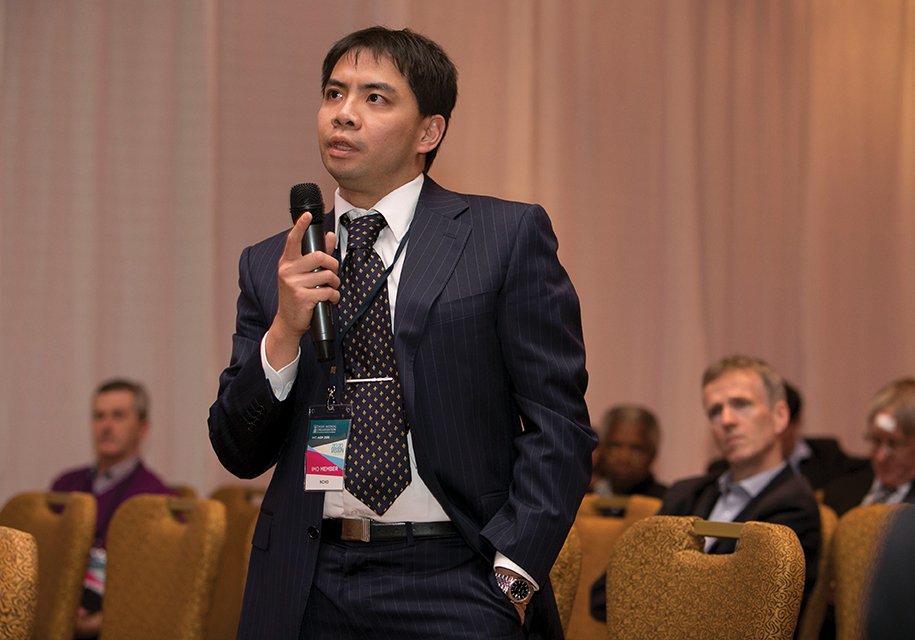
Dr Goh said that, despite tiredness, doctors still attempt to perform at their best. However, “when we switch off from our routine, when we are at the end of our shift and step out of the door and say ‘right I can relax’, car crashes are then very common among the medical profession.
“Ask any insurance agent. As soon as I put down medical doctor on my insurance application, my premium goes up by 20 per cent and that is a fact across the board.
“Every single doctor will be able to give you an anecdote of crashing their car somewhere along the route at some stage, falling asleep at the wheel, stopping at a light and not starting because they have fallen asleep at the red light, etc.
“I myself veered off the N4 and actually crashed into an insurance broker of all people. Lost a wing mirror. Everyone of us has these stories.”
Dr Goh said that full implementation of the European Working Time Directive (EWTD) would improve the situation (see sidebar).
“Unfortunately, like it or not we provide a 24-hour service, so somebody has to provide that service,” he said.
“The tricky thing for junior doctors is that we are trying to balance training, which is only really available during the day, when the patient is available and the consultant is available to do the teaching and then somebody has to also come on at night to cover the service. So it is a very tricky balance and I don’t know whether any jurisdiction has come up with the perfect answer to it.
“Certainly mandating rest-time, making sensible arrangements for people doing night shifts, would go a long way to alleviate fatigue and lessen the impact of shift work on health.”
Adapt
Last March, the BMJ published an article entitled ‘Optimising sleep for night shifts’. Asked whether this topic provoked much interest, the article’s co-author Dr Helen McKenna, Intensive Care Research Fellow, University College London, said: “Yes, there was a significant response from junior doctors on social media.”
“I’ve been asked to present the work on BBC news, on the radio, at educational meetings for doctors, both in the UK and abroad,” she told MI.
“When presenting the work in person, it is very clear that this is an issue close to the hearts of frontline medical staff everywhere, with its profound impact on our health and performance and thus also on the wellbeing of our patients.”
The article has since been turned into a handy fact sheet on how to optimise sleep for night shifts (see weblinks).
“We have been asked by hospitals to display the fact sheet in their departments,” said Dr McKenna.
In terms of education for doctors, Dr McKenna believes it’s lacking.
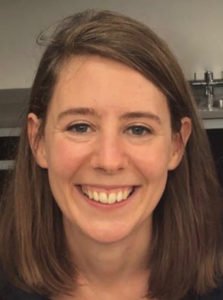
“Neither as a medical student, nor as a junior doctor, was the effect of shiftwork on my health and performance addressed in my education, which is the reason we wanted to write the article for the BMJ,” she said.
“It is something that clinical staff often discuss informally, but until recently, it has not been part of medical or hospital training. Some individual colleges in the UK have started to try to address the problem. The ‘fight fatigue’ campaign, by the Royal College of Anaesthetists, for example – but this is all very recent.”
Circadian
Would Dr McKenna be concerned that a focus on how doctors can best deal with long overnight shifts may undermine the demand for reform?
“On the contrary, the message from the scientific literature is that it is not possible to adapt biologically to shiftwork in the short-term,” said Dr McKenna.
“Our circadian clock takes one day per hour it is shifted and most clinical staff do short bursts of night shifts interspersed with day shifts.
“What we discuss in the BMJ article is the evidence-base for any personal strategies that doctors can implement to try to minimise harm to themselves and their patients. Little work has been done in this setting, the evidence is very sparse.
“Ultimately, I believe that the responsibility must be shared with our employers, to provide sleeping facilities and protocols for protected naps at night, which are mandated for pilots during overnight long-haul flights, and proven to be beneficial; and to increase the amount of sleeping time in between shifts, perhaps by providing rest facilities in between times, and protect junior doctors from the potentially lethal drive home.
“Instead, UK Trusts now mandate that clinical staff must not sleep during the night shift and fail to recognise that doctors are also human beings subject to biological processes.”
Back in Ireland, Dr Goh thinks there remain significant challenges.
“I honestly think doctors don’t help themselves. I’m as guilty of this as anybody else,” said Dr Goh.
“I see a patient in front of me [after his shift is officially over], and I want to help the patient. I’ll say to hell with myself and I don’t look after myself. My wife keeps on giving out to me for not looking after myself. She’s right.”
But do all health systems not take advantage of the fact that doctors will most likely put in the extra hours beyond that which they are scheduled?
“Yes, but I think the Irish health service is particularly guilty of it,” said Dr Goh.
“I have seen other jurisdictions make an effort to make the job easier. Whereas there seems to be very little effort in the health system here to make the job easier in terms of time commitments and in terms of how onerous the job is. Part of it is hiring enough people, boots on the ground.
“Recruitment and retention is a vicious circle. If you have got bad working conditions, people don’t want to work here. In order to improve those working conditions you need more staff.
“But if you can’t hire more staff you have to deal with what you have and therefore it makes the working conditions even worse.”
Rest facilities and European Working Time Directive (EWTD) woes
At the IMO AGM in April the IMO NCHD committee raised concerns over suitable on-site rest facilities for doctors and the provision for transport home for tired doctors.
“Well, to put it quite frankly, I think we are going backwards,” said Dr Goh.
“Traditionally doctors have been provided with an on-call room, so we would have space when we do long shifts to get our rests when we can … catch 40 winks or whatever it is …
“With the shift towards EWTD what has happened is people and certain institutions are saying that these doctors are working shorter shifts, so they don’t need the rest when they are working overnight, because they are not doing the 24-hour shift anymore, they are doing shiftwork.
“So you have people coming in doing a 12- or 13-hour shift at night who may have been working a normal day the day before, so they are completely jet-lagged. So with the move by certain institutions to take away the existing on-call rooms, there is now nowhere [for them] to sleep, nowhere to rest.”
Dr Goh said hospitals must provide sufficient on-site rest facilities
“Doctors by default are hard-working, very enthusiastic and very idealistic. We don’t do this for creature comforts,” said Dr Goh.
“Anyone who went into medicine for money is deluded. Most of us have come to accept that we will never be looked after. Our job satisfaction comes from looking after patients. But there are certain basic dignities [that need to be looked after by health management].
“Having a protected place, a quiet place to rest, when you are not required to be on your feet, should be a bare minimum standard.”
In terms of EWTD in Ireland, Dr Goh said that, if properly followed, it “would be a step forward”. However, for the moment it has been “sketchily implemented”. He said that hospitals in Ireland have different polices and “it has been very piecemeal”.
“I am due to do a 25-hour shift on Friday followed by a 24-hour shift on Sunday, in this week. I will probably have worked about 80 hours between Monday and Sunday and the official HSE figures will say that I am 24-hours compliant and I am working on a 48-hour rote week.”
‘Rubbish’
Dr Goh said the IMO has been gathering data on EWTD.
“The reporting mechanisms used by the various hospitals are rubbish and that would be our general take on things,” he said.
“Regarding the reporting mechanism used through the EWTD implementation body, we just don’t know how they are getting as good as figures as they are.
“Every one of us knows that when you finish at five you don’t down tools at five o’clock; you are probably going to go on for a little bit. My shift finished at five o’clock yesterday, I didn’t leave here until six because I had a patient … and that would be typical and we do not work that time into our rosters. There is no effort to make rosters complaint.”
Dr Goh said that serious fatigue leads to significant mental health challenges for doctors and has contributed to suicides in the profession.
The science of lack of sleep
Prof Jim Anthony Horne is a Sleep Neuroscientist and Emeritus Professor of Psychophysiology at Loughborough University, UK, and author of Assessing Sleep Need in Society Today (Palgrave, 2016). In 2012 Prof Horne published an article in the journal Neuroscience and Biobehavioural Reviews entitled “Working throughout the night: Beyond ‘sleepiness’ – impairments to critical decision making”.
The abstract from the paper notes “by the end of the first night on a 12-hour nightshift, wakefulness may have lasted up to 24-hours since the previous sleep. Although most work situations requiring critical decisions are foreseen and effectively resolved by well-trained staff, such wakefulness can produce impairments in dealing with unexpected challenging situations involving uncertainty, change, distractions, and capacity to evaluate risks.”
Prof Horne told MI that with such long wakefulness “too many avoidable mistakes will be made”.
Prof Horne added that “Judging sleep merely by duration is a crude index, overlooking sleep quality and the continuity of its ‘stages’ throughout sleep, which is just as important.
“The acid test of inadequate sleep is sleepiness throughout the day, not just during the ‘afternoon dip’. It is important to distinguish sleepiness from feeling ‘tired all the time’, often suggestive of sleep debt, but is not what it seems and can be the cause of poor sleep, not vice versa unlikely to be rectified by extra sleep or sleeping tablets.”
Asked how he got interested in this area of science, Prof Horne said it was “an enduring curiosity which has continued throughout my research, still with so many unanswered questions”.
The area of sleep medicine has become more prominent in recent years. Dr Mike Farquhar, Consultant in Sleep Medicine, told MI:“I’ve found sleep fascinating since I was a teenager, when I started to have fairly regular episodes of hypnagogic hallucinations and sleep paralysis – very scary sleep experiences which, in olden times were often mistaken for demonic possession and, these days, probably account for many alien abduction experience stories.”
“Once you understand the biology of sleep though, even weird events like this make sense. Sleep underpins every aspect of our physical and mental health, and sleep cuts across all fields of medicine, across every culture, throughout all of history – it’s a fundamental human experience, which is still full of mystery.
“So, I decided I wanted to be a sleep doctor, to be part of that.”
Weblinks
The optimising sleep for night shifts factsheet produced by the BMJ can be found here:
www.bmj.com/content/bmj/suppl/2018/03/01/bmj.j5637.DC1/night_shift_sleep_v24_web.pdf
The HSE has online information on sleep health at
www2.hse.ie/conditions/mental-health/insomnia.html#How-much-sleep
and www2.hse.ie/healthy-you/shake-off-the-sleep-monster.html
A list of sleep clinics in Ireland can be found on the Sleep Disorder Support Foundation website: www.sdsf.ie/clinics-3-2/
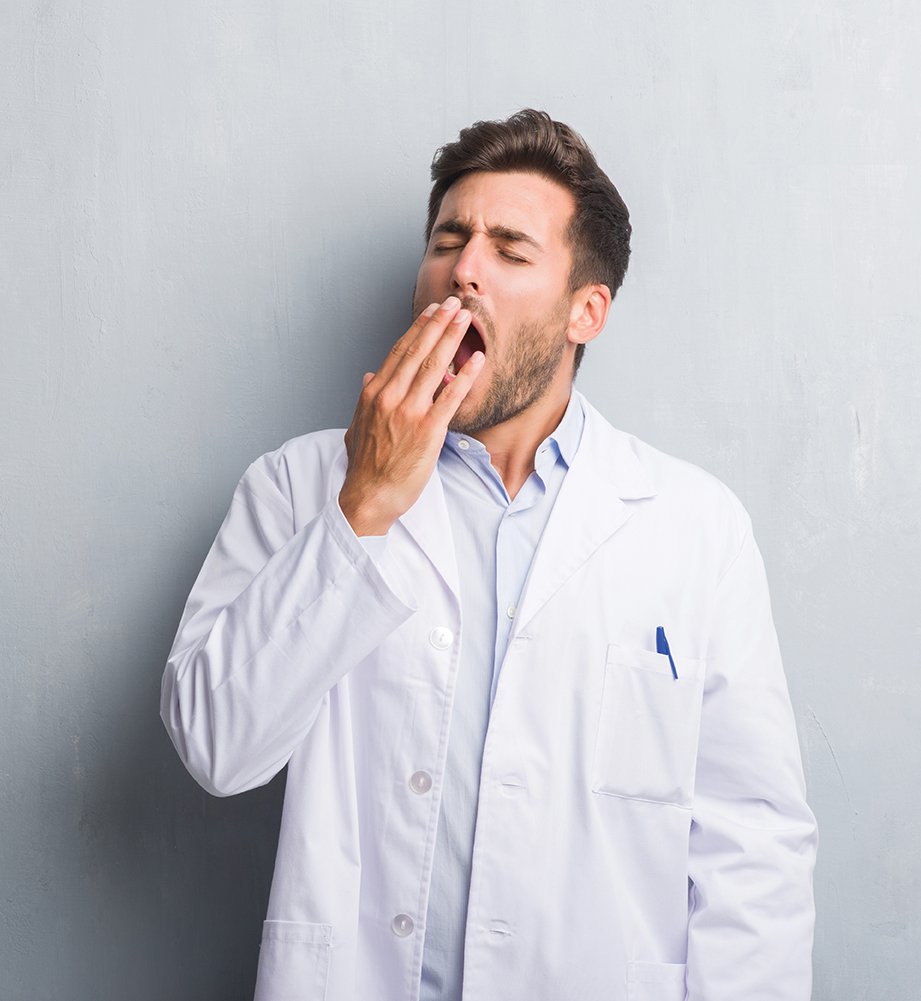
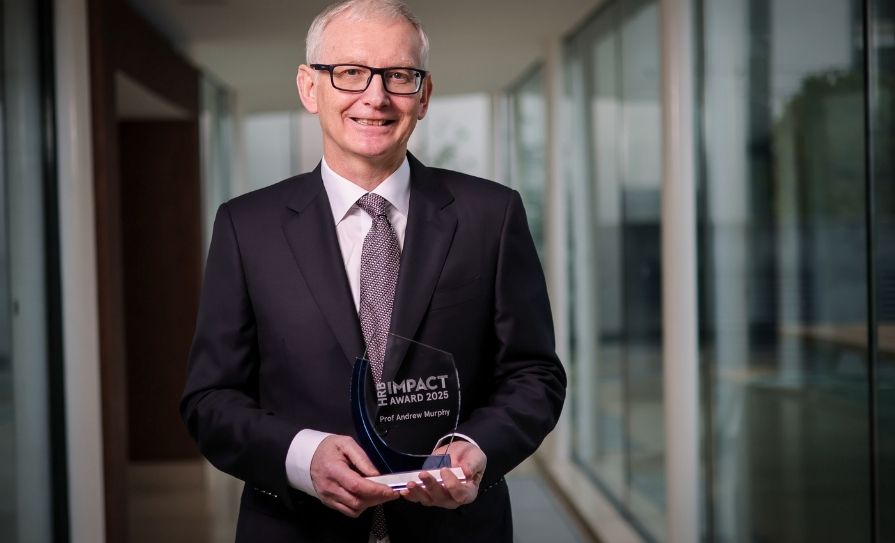











Leave a Reply
You must be logged in to post a comment.